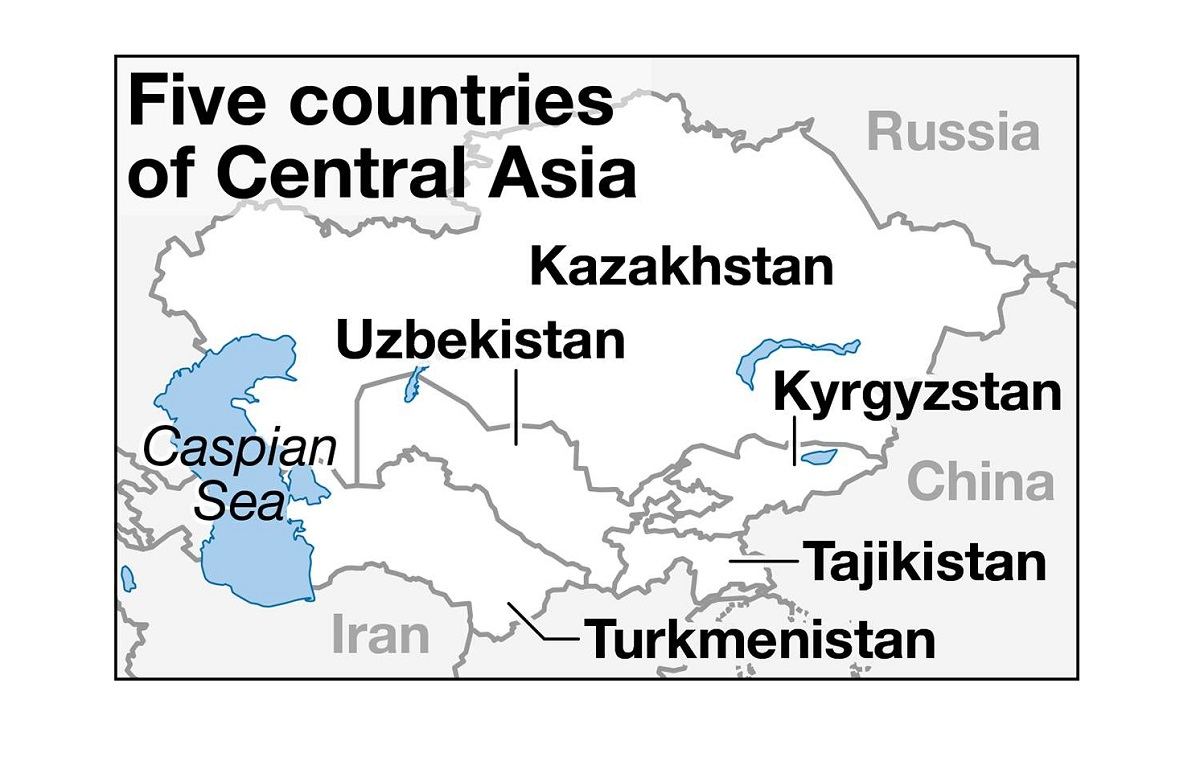Japan, 5 Central Asian Nations to Cooperate on Cutting Carbon; Tokyo Seeks to Make Presence Felt in Former Soviet States

17:01 JST, August 4, 2024
Leaders of Japan and five Central Asian countries are expected to agree to collaborate in three priority areas, including decarbonization, at their first summit meeting in Kazakhstan on Friday, according to a draft joint declaration to be adopted at the meeting.
The draft defines the participating countries as “partners in maintaining and strengthening the free and open international order based on the rule of law.”
Japan apparently aims to ensure its presence is felt in Central Asia, where Russia and China are growing more involved.
The five Central Asian countries are Kazakhstan, Kyrgyzstan, Tajikistan, Uzbekistan and Turkmenistan.
In light of Russia’s invasion of Ukraine, the draft declaration lays out a “commitment to the principles of the U.N. Charter, which prohibits the threat or use of force and calls on all members to respect sovereignty and territorial integrity.” As to economic coercion, the draft says the countries will “collaborate to deal with” such coercion, with China in mind.
As priority areas for collaboration, the draft singles out green technologies and resilience, connectivity and development of human resources. It says that collaboration will be “promoted through strategic and effective official development assistance.”
Central Asian countries, which formerly belonged to the Soviet Union, traditionally have had close ties to Russia in security and economic fields. But they began strengthening ties with other countries after Russia invaded Ukraine. While China is promoting economic cooperation with the countries through the Belt and Road Initiative, a massive China-led infrastructure project, the United States and European countries are also moving quickly to build up relations with the Central Asian countries.
The Japanese government launched a framework for dialogue with the five countries in 2004, and this year marks its 20th anniversary. As part of his overseas trip from Friday, Prime Minister Fumio Kishida plans to visit Kazakhstan and Uzbekistan and to build relationships of mutual trust with the two countries.
Alongside Kishida’s visit, a business forum is scheduled to be held that will see the participation of Japanese businesses. More than 200 collaborative projects are expected to be announced in line with the priority areas in the joint declaration.
Specifically, the projects are expected to include technical support in Kazakhstan for co-firing coal with ammonia, investment in wind and solar power generation projects in Uzbekistan, and development of an international airport in Kyrgyzstan.
Top Articles in Politics
-

Japan PM Takaichi’s Cabinet Resigns en Masse
-

Sanae Takaichi Elected Prime Minister of Japan; Keeps All Cabinet Appointees from Previous Term
-

Japan’s Govt to Submit Road Map for Growth Strategy in March, PM Takaichi to Announce in Upcoming Policy Speech
-

LDP Wins Historic Landslide Victory
-

LDP Wins Landslide Victory, Secures Single-party Majority; Ruling Coalition with JIP Poised to Secure Over 300 seats (UPDATE 1)
JN ACCESS RANKING
-

Producer Behind Pop Group XG Arrested for Cocaine Possession
-

Japan PM Takaichi’s Cabinet Resigns en Masse
-

Man Infected with Measles Reportedly Dined at Restaurant in Tokyo Station
-

Israeli Ambassador to Japan Speaks about Japan’s Role in the Reconstruction of Gaza
-

Videos Plagiarized, Reposted with False Subtitles Claiming ‘Ryukyu Belongs to China’; Anti-China False Information Also Posted in Japan





















